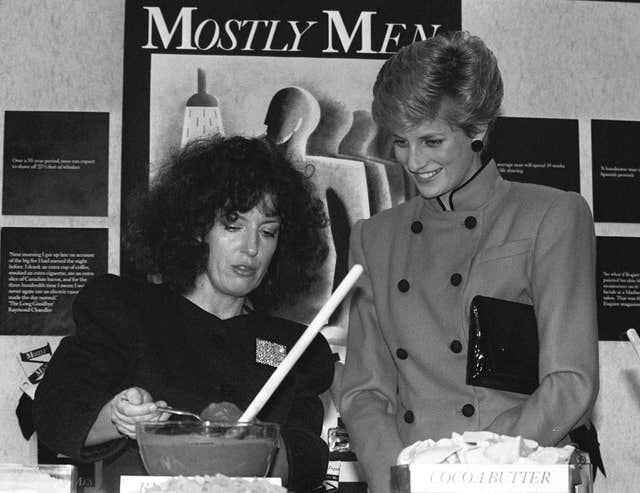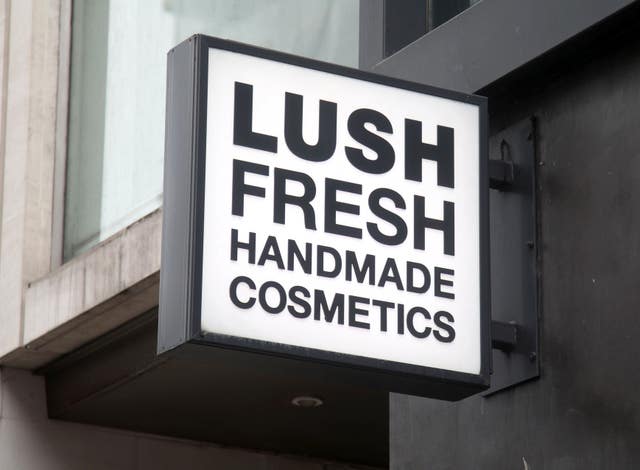
High street cosmetics and skincare retailer The Body Shop tumbled into administration on Tuesday amid weaker customer demand.
The announcement threatens the future of the brand in the UK, its more than 200 shops and thousands of workers.
Administrators said the restructuring is to create “a more nimble and financially stable UK business”.
However, it is a damning blow for the retailer’s workers and passionate customer base.
Here the PA news agency looks at what led to the firm’s collapse and what the administration might mean:
– What is The Body Shop?
The Body Shop is a high street and online retailer, specialising in cosmetics, skincare and beauty products.
The business had 215 UK stores at the end of last year, and also has global franchises which will not be impacted by the insolvency process.

It was founded in 1976 in Brighton by Anita Roddick and her husband Gordon as one of the first companies to promote so-called ethical consumerism, only selling its own ethically-produced items.
– Who has owned the business?
Anita Roddick grew the business rapidly over 30 years in charge, with the business witnessing particular success on UK high streets in the 80s and 90s.
“In the 1980s, the Body Shop was the place to go for young shoppers to splash out on fresh scented bubbles and beauty ranges, with a deep environmental conscience and a focus on social justice and conserving nature,” said Susannah Streeter, head of money and markets at Hargreaves Lansdown.
As a result, the group floated on the London Stock Exchange for £80 million in 1984.
The business continued to grow for two more decades but Ms Roddick and Gordon, who she ran the business alongside, came under criticism after they ultimately sold the business to French industry behemoth L’Oreal for £652 million in 2006.
A year later, Ms Roddick died aged 64 after a brain haemorrhage.
Under the ownership of L’Oreal, the firm saw its business model shift slightly, with production moving to the Philippines and discounts used to drive sales.
After increased international expansion, the business was then bought by Natura & Co, the Brazilian owners of Avon who specialised in direct-to-consumer sales, for £880 million.
Six years later the company shifted ownership again, being sold for a cut-price £207 million to German-headquartered private equity firm Aurelius.

– When did it first face financial troubles?
Under L’oreal the group had heavily expanded but saw sales growth slow down.
Nevertheless, it remained financially sound before being sold to Natura & Co.
In the following years, the company then saw its profitability eaten away by rampant inflation in production, pressure on consumer demand and weakness in the US markets.
As a result, it slid to £71 million loss in 2022 after its turnover dropped by almost a fifth.
– Why has it struggled?
Administrators FRP said the business “faced an extended period of financial challenges under past owners, coinciding with a difficult trading environment for the wider retail sector”.
It witnessed weaker consumer spending but this came despite growth in other parts of the sector.
GlobalData analyst Tash van Boxel said the company was “ahead of its time” with its initial brand identity but struggled to keep up with new competitors with increased points of difference in more recent years.
“While The Body Shop continues to stand by its ethical and cruelty-free brand values, these claims have become industry standards, weakening The Body Shop’s point of difference.
“Indeed, not only are brands now offering products with similar claims, but they also bring more to the table to attract shoppers.”

High street rival Lush recorded strong growth in recent years on the back of strong ethical credentials and vibrant products.
It has also seen growth cut into by the rapid expansion of online-focused rivals such as The Ordinary and Sephora.
– What does the administration mean?
Administrators are drafted into a company as a last resort to secure funds for its creditors – people owed money by the business such as suppliers.
FRP Advisory, who were hired on Tuesday, will assess offers for different parts of the company in order to find the best options to save jobs and shops, but will particularly focus on ensuring as much money is recouped as possible to return to creditors.
This could see the group sold whole as a going concern, broken up into parts for sale, or only selling specific assets such as its brand or remaining stock depending on demand from possible suitors.
Jeremy Whiteson, restructuring and insolvency partner at Fladgate, said: “It is hoped that a solution can be found which safeguards the jobs of staff.
“However, it seems likely that many buyers will simply be interested in the brand and stock, shifting the business to an online operation or to be integrated into a multi-brand retailer.”
– What will it mean for the future of staff?
In the immediate future, the company has said it will continue to trade as normal from stores and online during the administration.
It is not clear how many people still work for the UK business, it is understood it employs thousands across its UK store portfolio and London headquarters.
Administrators have not said if jobs will be lost during the process but stressed it will update employees “in due course”.

Enjoy the convenience of having The Sunday Post delivered as a digital ePaper straight to your smartphone, tablet or computer.
Subscribe for only £5.49 a month and enjoy all the benefits of the printed paper as a digital replica.
Subscribe